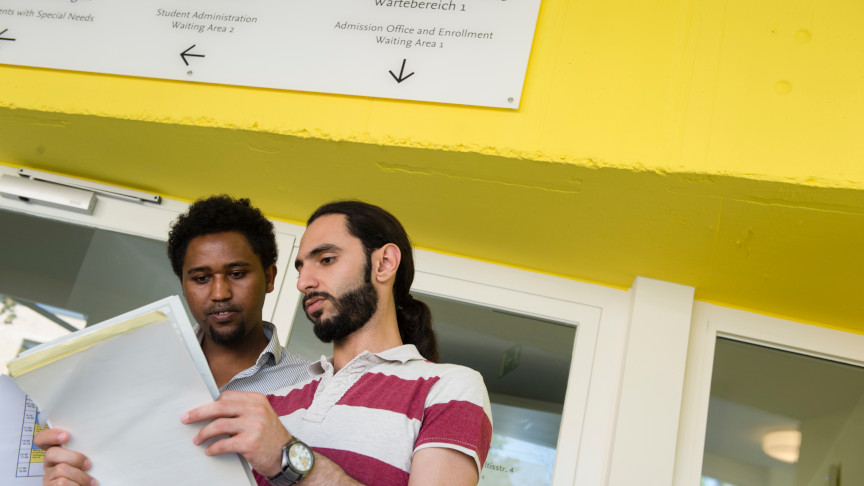University Entrance Qualification

The universities in Germany offer counselling and support in this context. At the moment, many universities are making unbureaucratic decisions for refugees. This can include, for example, attending courses as a guest student without a higher education entrance qualification. The following information will give you a general overview. We recommend contacting the university directly:
How to obtain a University Entrance Qualification (HZB)
In order to study in Germany with the intention of obtaining a German degree, you need a higher education entrance qualification (Hochschulzugangsberechtigung in German, short HZB).
In order to check your higher education entrance qualification, we recommend that you first use the DAAD’s admissions database. However, the assessment of your higher education entrance qualification in our admissions database is only an initial assessment.
Please contact your target university (usually its International Office) with this question as early as possible in order to receive an accurate assessment.
Persons with a school-leaving certificate or educational qualification that does not entitle them to study at a higher education institution in Germany must usually attend a preparatory course at a German Studienkolleg. There they must successfully pass the assessment test before they can be admitted to higher education in Germany.
To be admitted to a Studienkolleg, you need to have a very good knowledge of German (level varies depending on the Studienkolleg) and must pass an entrance examination. Also you need to have a certificate of complete secondary education from a secondary school (such a certificate from a Ukrainian college will not be sufficient). At a Studienkolleg in Germany you will attend a one-year course and finally take the Feststellungsprüfung (assessment test).
You can find more general information about Studienkolleg on the DAAD website or on the website of the Studienkollegs in Germany (incomplete list of state Studienkollegs).
There may be special regulations for Ukrainian refugees at individual universities or in some federal states, so that you may not have to attend a Studienkolleg. In any case, you should seek advice at your local university.
Persons with a recognised school-leaving certificate or educational qualification have a general (for all degree programmes) or subject-specific (only for certain degree programmes) higher education entrance qualification (HZB), which generally entitles them to study at a higher education institution. With an ukrainian Junior Bachelor Diploma you have a subject-specific HZB (not to be confused with Junior Professional Bachelor, which does not entitle to get direct admission to a Studienkolleg).
There are various ways to apply for a place at a German university. Which application procedure you have to choose depends on your target university and the degree programme.
In the application process, a distinction is usually made between:
- Direct application to the university
- Application via uni-assist e.V. (Service Centre for International Student Applications)
- Application via the Foundation for University Admission
Please be sure to contact your target university (usually the International Office) as soon as possible with this question in order to find out about the correct application procedure.
Further helpful links
To help you find a place to study in Germany, we would like to draw your attention to further portals and websites:
- In the portal My GUIDE you can start planning your studies in Germany in the best possible way after registering. For example, you can carry out your admission check with the DAAD admissions database for specific study programmes and search for study programmes throughout Germany. In addition, you can contact your target university directly to clarify any further questions you may have.
- On the DAAD website as well as on Study in Germany you will find a lot more helpful information on the topic of planning your studies in Germany.

